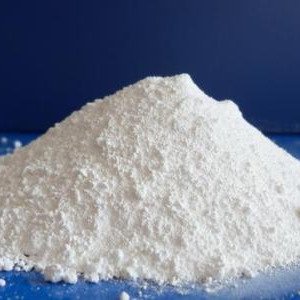Fatty alcohol sulfate (FAS)
Fatty alcohol sulfates have been commercially produced since 1930. Now FAS has become a very important surfactant. Currently, about 40% of coco alcohol is used to produce FAS. In addition, plasticizer alcohol and tallow alcohol sulfate are also produced. However, the output is far less than that of coco alcohol sulfate.
In industry, FAS usually uses chlorosulfonic acid or sulfur trioxide to esterify fatty alcohols, and the obtained fatty alcohol monoesters are further treated with sodium hydroxide or alcohol amines. Made of harmony.
R—OH soil CISO3H—R-O—SO3H+HCl
R—OH+SO3—R-O—SO3H
R–OSO4H+NaOH—ROSO2Na+H2O
R OSO3H+H2NCH2CH2OH—R OSOH3NCH2CH2OH
The application performance of FAS is mainly determined by the length of the fatty anhydride chain and the nature of the cation. In various FAS, the carbon chain is C 12~C14 has the strongest foaming ability. Its low-temperature washing performance is also the best. As the washing temperature increases, the chain length required to achieve optimal washing performance must also increase, and the emulsifying ability also increases with the increase in chain length.

Natural fatty alcohols are all straight-chain alcohols. Compared with sulfates of secondary alcohols or branched-chain alcohols, FAS has stronger washing and foaming properties than the latter. . Its wetting properties are low.
FAS is mainly used to prepare liquid detergents, tableware detergents, various shampoos, toothpaste, textile moisturizing and detergents, and in chemical industry emulsification and polymerization. In addition, powdery FAS can be used to prepare powdery cleaning agents and wetting powders for pesticides.
Sulfonates of esters and amides
The more important varieties are succinic acid diester sulfonate and N-oleoyl-N-methyltaurate, which are both important Textile printing and dyeing auxiliaries.
For succinic acid diester sulfonate, the properties vary depending on the alkyl structure of the ester group. The most common one is penetrant T, which The raw materials for production are maleic anhydride and sec-octanol. First, the ester is made, and then sodium bisulfite is used for double bond addition for sulfonation.
The permeability is fast and uniform, and the wettability, emulsification and foaming properties are good. The main uses are: raw cotton products that do not need to be bleached can be treated with it. After scouring, it is directly dyed, using penetrant T to scouring, bleaching and dyeing in one bath. In addition, it can also be used as a pesticide emulsifier.
The trade name of N-oleoyl-N-methyltaurate is Pancreatic Acid T.
Yanjia bleaching T is a light yellow colloidal liquid with an active ingredient >18%. It has excellent cleaning, leveling, penetrating and emulsifying functions. It is widely used Used as a descaling agent and wetting agent in the printing and dyeing industry. It is especially suitable for dyeing and cleaning animal fibers such as wool. It can also improve the feel and luster of fabrics.
Phosphate ester
Phosphate ester anionic surfactants include phosphate monoesters and diesters. Alkyl phosphates are not resistant to acids and hard water, and their calcium and magnesium salts are insoluble. Acid phosphates have low solubility in water. However, the solubility of its metal salts is relatively large. Their surface activity is very good. In order to improve its performance, the R group can also be used as a polyoxyethylene quinone group.
Oxate ester anionic surfactants are high in price and have the above limitations, so they are only used in some special circumstances. Its main use is to combine with other surfactants to form an oil for fiber spinning. In this application •Phosphate vinegar acts as a smoothing, antistatic and cohesive agent.

 微信扫一扫打赏
微信扫一扫打赏

